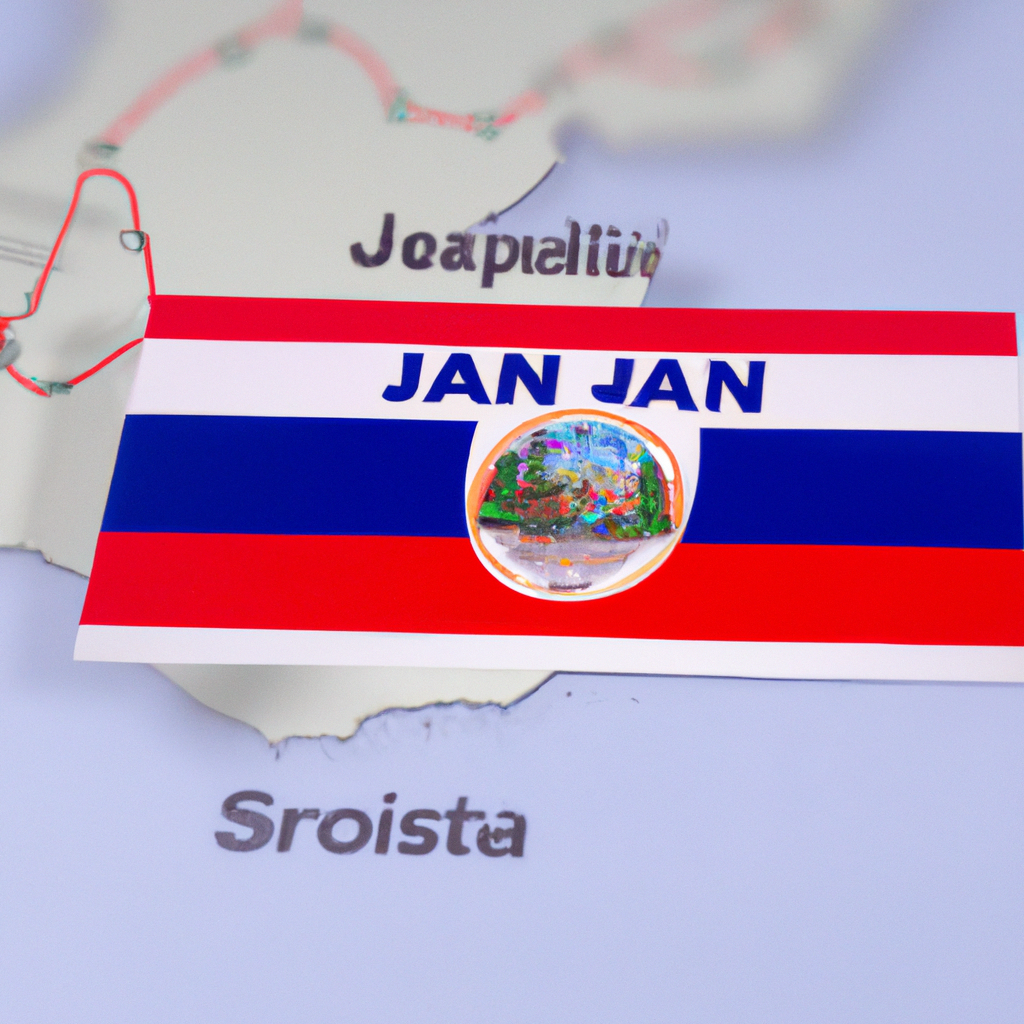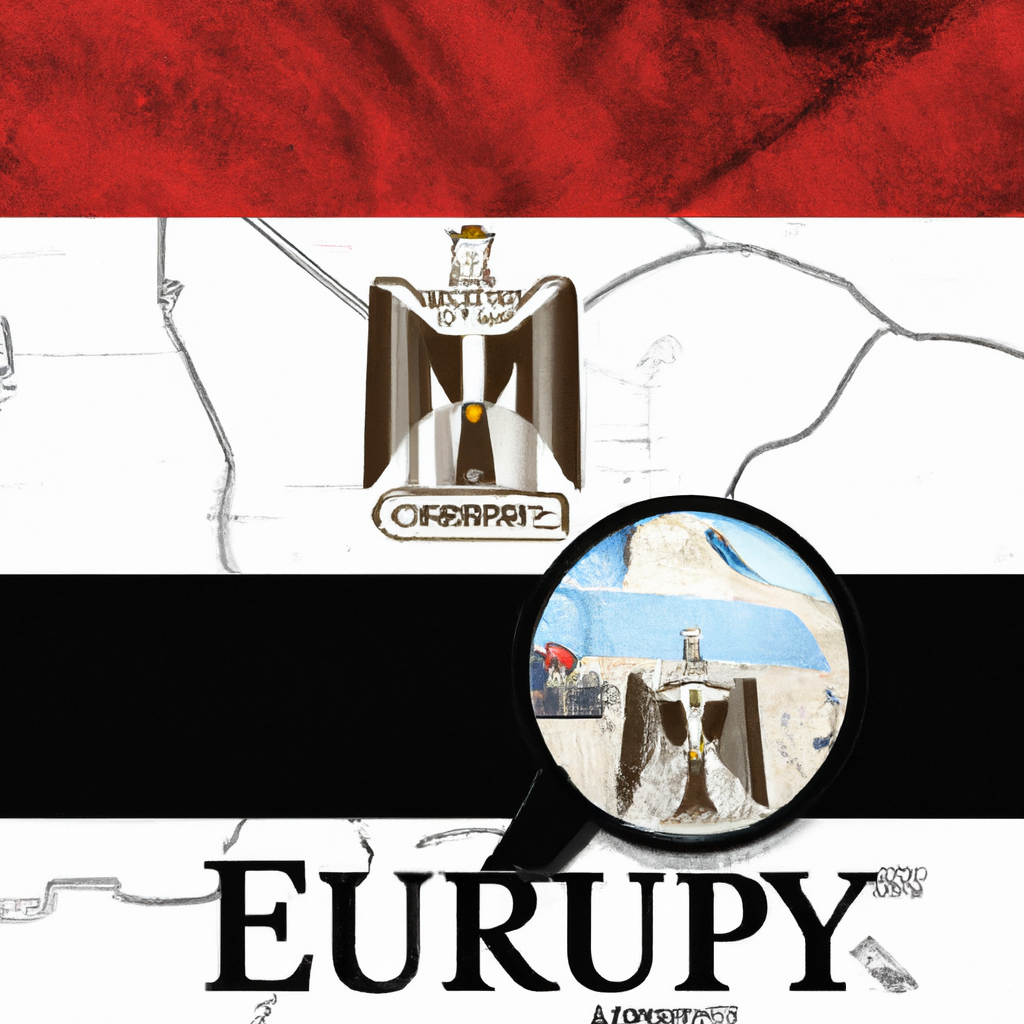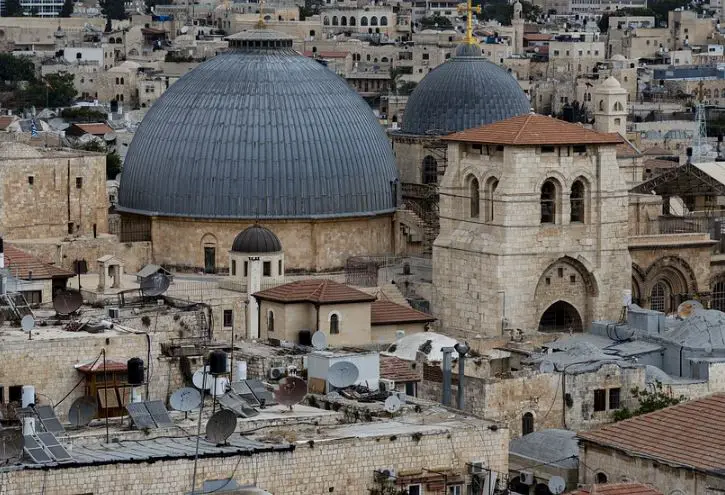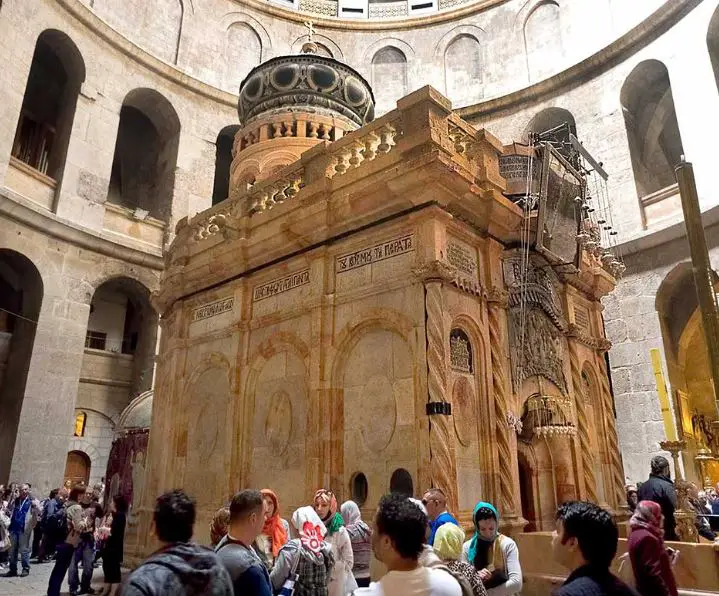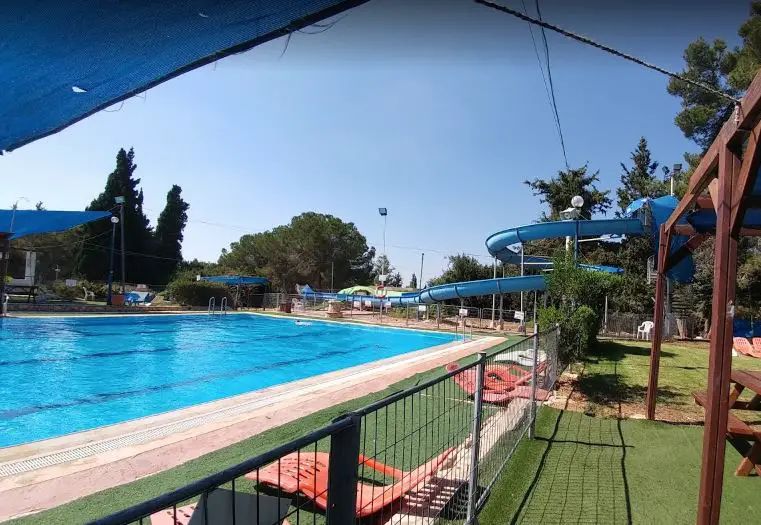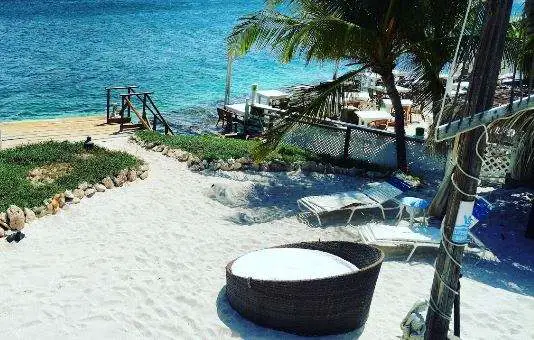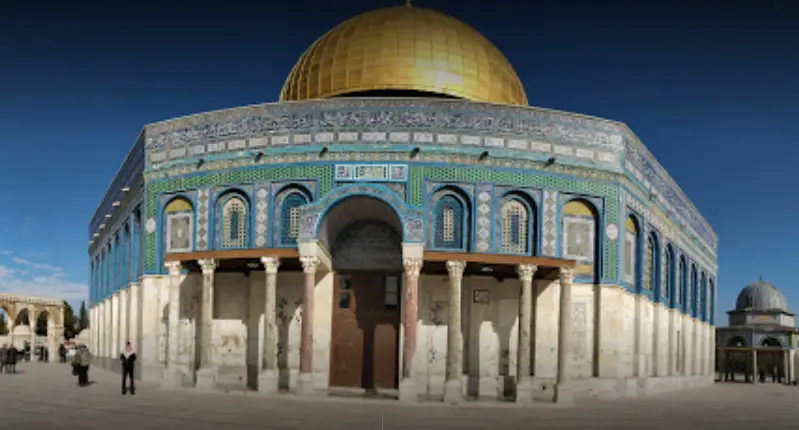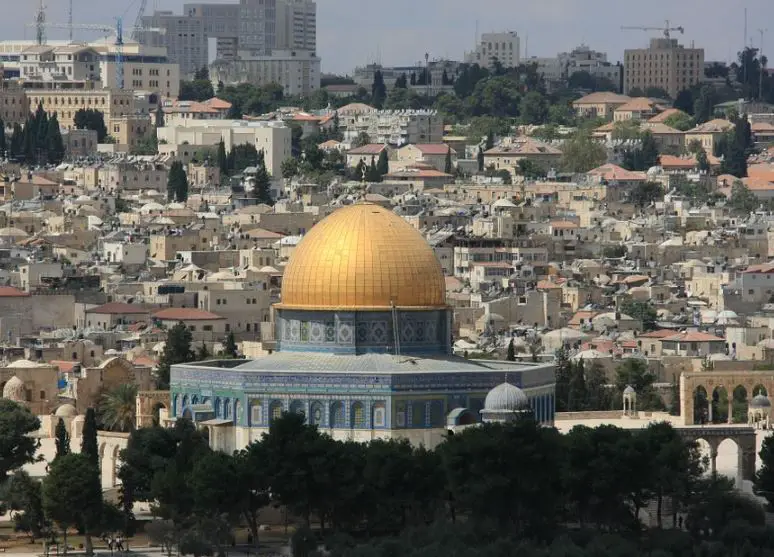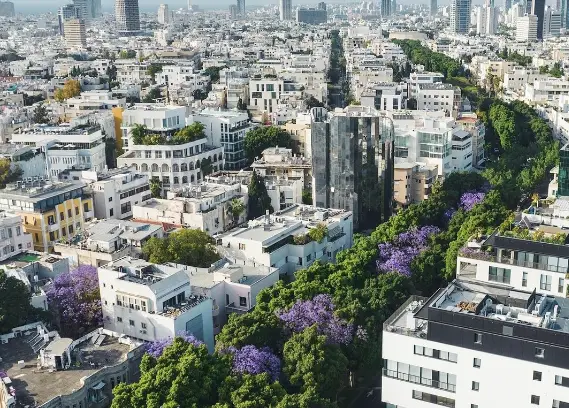Tel Aviv, Israel: Interesting Facts,History, Things to do,Why to Visit
Post ByAdequate Travel
Tel Aviv, Israel is a fascinating European city in the Middle East. With its fascinating history, unique culture and sunny beaches, it's no surprise that Tel Aviv has become one of the most popular travel destinations in the world. From exploring the city's ancient and modern history to trying out delicious Israeli cuisine, there are endless things to do in this vibrant and exciting city. Whether you're looking to learn about the city's past, enjoy its clubs and nightlife, or simply take in the stunning scenery, Tel Aviv has something for everyone. Discover the city's remarkable history and culture and explore the many things to do, see and experience in and around Tel Aviv.
Israel is a small country located in the Middle East, bordered by Lebanon, Syria, Jordan, Egypt, and the Mediterranean Sea. It is a democratic nation with a parliamentary system and has a diverse population consisting of Jewish, Muslim, Christian, and other religious and ethnic groups. Israel is known for its historical and religious significance, as it is the birthplace of Judaism and Christianity. It has a developed economy and is a center for technology and innovation. However, the country also faces political challenges, including ongoing conflicts with its neighbors and the Israeli-Palestinian conflict.Explore the popular places in israel, and immerse yourself in its vibrant culture.
Interesting facts
Israel Facts
Geography:
- Israel is located in the Middle East, bordered by Lebanon to the north, Syria to the northeast, Jordan to the east, Egypt to the southwest, and the Mediterranean Sea to the west.- The country has diverse geographic features including mountains, valleys, deserts, and coastal plains.- The Dead Sea, located at the border of Israel and Jordan, is the lowest point on Earth and its high salt concentration enables easy floating.History:
- Israel has a rich history dating back thousands of years, with significant events occurring in Biblical times and during the Roman Empire.- The modern state of Israel was established in 1948, following the United Nations' partition plan for Palestine after World War II.- Israel has faced conflicts and wars with neighboring nations, including the Arab-Israeli wars and ongoing Israeli-Palestinian conflicts.Culture and Religion:
- Israel is considered as the birthplace of three major world religions: Judaism, Christianity, and Islam.- Jerusalem, the capital city, is a holy site for all three religions and hosts significant religious landmarks such as the Western Wall, the Church of the Holy Sepulcher, and the Al-Aqsa Mosque.- Jewish culture is predominant in Israel, but the country also embraces a diverse society with various ethnic groups and languages.Innovation and Technology:
- Israel is often referred to as the "Start-Up Nation" due to its flourishing high-tech industry and innovation.- The country has a considerable number of successful tech companies in various fields including cybersecurity, biotechnology, and telecommunications.- Examples of Israeli start-ups include Waze (navigation app), Mobileye (autonomous driving technology), and Check Point Software Technologies (cybersecurity).Natural Wonders:
- Despite its relatively small size, Israel boasts diverse natural wonders including the Negev Desert, the Galilee region with its lush landscapes, and the stunning Red Sea coral reefs in Eilat.- The Ramon Crater, also known as Makhtesh Ramon, is a unique geological formation in the Negev Desert, offering breathtaking panoramic views.From museums to parks,israel tourist attractions offer something for everyone, making it a versatile destination for all type of tourists.History of Israel
The history of Israel can be traced back thousands of years to biblical times. The land of Israel has been a center of religious and cultural significance for various civilizations and peoples throughout history. Here is a brief overview of the history of Israel:
Ancient History:
- Israel's ancient history begins with the biblical narrative of the Israelites, descendants of Abraham, Isaac, and Jacob, settling in the land of Canaan around 1800 BCE.
- The Israelites formed a kingdom led by biblical figures such as Saul, David, and Solomon, whose reign marked the peak of ancient Israel's power and influence.
- The First Temple was built in Jerusalem by King Solomon in the 10th century BCE and became the central place of worship for the Israelites.
- In 586 BCE, the Babylonians, under King Nebuchadnezzar II, destroyed the First Temple and exiled many Israelites to Babylon, marking the beginning of the Babylonian Captivity.
Revival and Diaspora:
- In 538 BCE, the Persian Empire, led by Cyrus the Great, conquered Babylon and allowed the exiled Jews to return to their homeland.
- The Second Temple was built in Jerusalem in the 5th century BCE and became the religious and political center of Jewish life.
- Throughout the centuries, Israel faced periods of foreign rule and conflicts. The Romans, in 63 BCE, conquered the region and renamed it Judea.
- In 70 CE, the Romans destroyed the Second Temple during the First Jewish-Roman War, leading to the dispersal of Jewish populations, known as the Jewish Diaspora.
Zionism and Modern Israel:
- In the late 19th century, the Zionist movement emerged with the goal of establishing a Jewish homeland in Palestine.
- The British Mandate for Palestine, established after World War I, supported the idea of a Jewish homeland in Palestine.
- The Holocaust during World War II further intensified the desire for a Jewish state, leading to increased immigration of Jewish refugees to Palestine.
- In 1947, the United Nations proposed the partition of Palestine into Jewish and Arab states, which was accepted by Jewish leaders but rejected by the Arab nations.
- On May 14, 1948, the State of Israel was declared, and immediately faced attacks from neighboring Arab countries.
- Since its establishment, Israel has been involved in various conflicts, including the Arab-Israeli Wars, the Israeli-Palestinian conflict, and ongoing regional tensions.
Israel's history is complex and multifaceted, encompassing ancient roots, periods of exile and diaspora, and the modern establishment of the State of Israel. The country's history is deeply intertwined with religious, cultural, and political factors, shaping its present realities and challenges.
Exploring the rich heritage of historical sites in israel is a journey through time and culture.Famous Landmarks in Israel
1. Western Wall: Also known as the Wailing Wall, it is an ancient limestone wall in Jerusalem. It is a significant religious site for the Jewish people and is visited by millions of tourists and worshippers each year.2. Masada: Located on top of an isolated rock plateau in the Judean Desert, Masada is a fortress built by King Herod. It is famous for its significance in Jewish history and for the remarkable views it offers.3. Dead Sea: The Dead Sea is a saltwater lake bordered by Jordan to the east and Israel to the west. It is known for its high salt concentration, which allows people to float on its surface. The mineral-rich mud found around the sea is also renowned for its therapeutic properties.4. Yad Vashem: Yad Vashem is the official memorial to the victims of the Holocaust in Jerusalem. It is a comprehensive museum and educational center, dedicated to preserving the memory of the six million Jewish victims and honoring those who risked their lives to save Jews during World War II.5. Tel Aviv Promenade: A bustling waterfront area in Tel Aviv, the promenade stretches along the Mediterranean coastline and offers stunning views of the sea. It is a popular spot for leisurely walks, cycling, and various outdoor activities.Famous Israeli Personalities
1. David Ben-Gurion: He was the first Prime Minister of Israel and a key figure in the country's independence. Ben-Gurion played a crucial role in the establishment of the State of Israel and promoted the integration of Jewish immigrants.2. Golda Meir: Golda Meir was the fourth Prime Minister of Israel and the first woman to hold this position. She was known for her strong leadership during the Yom Kippur War and her dedication to establishing Israeli sovereignty.3. Shimon Peres: A prominent politician and statesman, Shimon Peres served as the ninth President of Israel and was awarded the Nobel Peace Prize for his efforts in the Israeli-Palestinian peace process.4. Amos Oz: A renowned Israeli writer, Amos Oz's works have been translated into numerous languages. He was known for his insightful exploration of Israeli society and his advocacy for peace in the region.5. Gal Gadot: Gal Gadot gained international recognition as the actress who portrayed Wonder Woman in the DC Extended Universe films. She is considered an influential figure and a global ambassador for Israel.Discover some unique facts about israel that will leave you amaze and intrigue.Culture of Israel
Israel is a country with a rich and diverse culture, shaped by its history and the merging of different immigrant groups. This article will delve into the various aspects of Israeli culture, including its language, religion, arts, music, and cuisine.Language
The official language of Israel is Hebrew. This ancient language was revived and modernized during the early days of the Zionist movement. Today, Hebrew is spoken by the majority of Israeli citizens and serves as a unifying factor for the various Jewish communities living in the country.Example points related to language:
1. Hebrew is taught in schools and used in all official documents and communication.2. Many Israelis are also fluent in English, and it is widely spoken in business and tourism sectors.3. Arabic is another significant language spoken by the Arab-Israeli minority population.Religion
Israel is a unique blend of different religions, with Judaism being the largest and defining faith. The country is also home to significant Christian and Muslim communities, as well as smaller communities of Druze, Bahá'í, and others. This diversity plays a significant role in influencing Israeli culture and traditions.Example points related to religion:
1. Judaism heavily influences Israeli culture, with many of the Jewish holidays and traditions celebrated nationwide.2. Christian sites, such as the Church of the Holy Sepulchre in Jerusalem, attract pilgrims from around the world.3. The Muslim community observes Ramadan and other Islamic holidays, contributing to the multicultural fabric of Israeli society.Arts and Music
Israeli arts and music reflect the country's diverse population and history. Contemporary Israeli art often explores themes related to heritage, conflict, and national identity. In music, Israeli artists have made notable contributions to various genres, including rock, pop, and world music.Example points related to arts and music:
1. Israeli cinema has gained international recognition, with films such as "Waltz with Bashir" and "Foxtrot" receiving critical acclaim.2. Traditional Jewish music, often accompanied by instruments like the oud and violin, is performed at religious gatherings and festivities.3. Israeli pop music has grown in popularity, with artists like Idan Raichel and Ofra Haza achieving international success.Cuisine
Israeli cuisine is a fusion of different culinary traditions brought by Jewish immigrants from around the world. It combines Middle Eastern, Eastern European, Mediterranean, and North African flavors, resulting in a diverse range of dishes that are both delicious and unique to the Israeli palate.Example points related to cuisine:
1. Falafel, hummus, and shawarma are iconic Israeli street food items.2. Traditional Jewish dishes like challah bread, gefilte fish, and matzo ball soup are commonly prepared for religious holidays.3. Israeli cuisine embraces fresh vegetables, fruits, and spices, reflecting the bountiful agricultural scene in the country, and has gained recognition as a healthy and flavorful cuisine worldwide.In conclusion, the culture of Israel is a vibrant tapestry woven together by its language, religion, arts, music, and cuisine. It is a melting pot of various cultures, traditions, and influences that have shaped and continue to shape the identity of the Israeli people.Immerse yourself in the local culture by exploring israel's top-rated tourist attractions.Cuisine of Israel
The cuisine of Israel is a fusion of Jewish and Middle Eastern influences, resulting in a diverse and flavorful culinary tradition. It combines the traditional dishes and techniques of Jewish cuisine with the vibrant flavors and spices of the Middle East. Here are some key aspects of Israeli cuisine:
1. Mediterranean Influence
The Mediterranean Sea heavily influences Israeli cuisine, with an abundance of fresh seafood like fish, shrimp, and squid being commonly used in dishes. Olive oil, fresh herbs, garlic, and citrus flavors are also prevalent, giving Mediterranean flair to many Israeli recipes.
2. Salads and Mezze
Israeli cuisine is known for its vibrant salads and mezze, which are small dishes served as appetizers. Popular Israeli salads include tabbouleh (bulgur wheat, parsley, and tomatoes), fattoush (a mixed green salad with toasted pita bread), and Israeli salad (chopped cucumbers, tomatoes, and herbs).
3. Street Food
Street food plays a significant role in Israeli cuisine, offering delicious and quick options for locals and tourists alike. Falafel, a deep-fried ball made from ground chickpeas or fava beans, is a beloved Israeli street food. Other popular street food items include shawarma (grilled and thinly sliced meat in pita bread) and sabich (a sandwich filled with eggplant, hard-boiled eggs, and various condiments).
4. Dairy Products
Israel has a rich dairy tradition, and dairy products are commonly used in Israeli cuisine. Labneh (yogurt cheese), feta cheese, and other soft cheeses are often incorporated into dishes or served as accompaniments. These dairy products add a creamy and tangy element to many Israeli recipes.
5. Influences from Jewish Tradition
Jewish culinary traditions have had a significant impact on Israeli cuisine. Traditional Jewish dishes such as matzo ball soup, gefilte fish, and challah bread are still enjoyed in Israel. Ashkenazi Jewish cuisine from Eastern Europe and Sephardic Jewish cuisine from the Mediterranean region also contribute to the diverse flavors found in Israeli food.
Overall, Israeli cuisine is a combination of various cultural influences, resulting in a vibrant culinary scene filled with delicious and unique dishes. From the fresh flavors of the Mediterranean to the traditional Jewish recipes, Israeli cuisine offers a diverse and exciting dining experience.israel tourist attractions offer a diverse range of experiences for every traveler.1. Visit the Western Wall in Jerusalem
The Western Wall, also known as the Wailing Wall, is one of the most significant religious sites in Israel. It is the only retaining wall that remains from the Second Temple of Jerusalem and is considered a place of prayer and reflection for Jews. Visitors can witness the ancient practice of placing written prayers in the cracks of the wall and experience the spiritual atmosphere of this sacred place.
2. Explore the Old City of Jerusalem
The Old City of Jerusalem is a UNESCO World Heritage Site and is divided into four quarters - the Jewish Quarter, the Muslim Quarter, the Christian Quarter, and the Armenian Quarter. Each quarter holds historical and cultural treasures, including significant religious sites like the Church of the Holy Sepulchre, Al-Aqsa Mosque, and the Western Wall. Exploring the narrow alleys and bazaars in this ancient city provides a unique glimpse into the diverse cultures and religions that coexist here.
3. Float in the Dead Sea
The Dead Sea, located at the lowest point on Earth, is famous for its high salt and mineral content, making it extremely buoyant and allowing visitors to effortlessly float on its surface. The therapeutic properties of the Dead Sea mud and minerals are renowned, and many people come here to indulge in mud baths and enjoy the soothing waters. It's a one-of-a-kind experience that shouldn't be missed when visiting Israel.
4. Visit Masada
Perched on top of a desert plateau, Masada is an ancient fortress that holds great historical significance. It was the site of a Jewish rebellion against the Roman Empire in the 1st century AD. Today, visitors can reach the summit either by hiking the snake path or taking a cable car. The ruins offer breathtaking views of the surrounding desert and the Dead Sea, and exploring the archaeological remains of the palaces, baths, and storerooms adds to the sense of history one experiences here.
5. Relax in the Red Sea resort city of Eilat
Eilat is a popular resort city located on the shores of the Red Sea. It is known for its beautiful beaches, vibrant coral reefs, and a wide range of water sports activities such as snorkeling and diving. Additionally, Eilat offers a variety of entertainment options, including restaurants, shops, and a lively nightlife scene. Relaxing on the beach, exploring marine life, and enjoying the city's amenities make Eilat a must-visit destination.
These are just a few examples of the many things to do in Israel. The country is rich in history, culture, and natural beauty, offering endless opportunities for exploration and enjoyment. From visiting historic sites to experiencing the vibrant modern cities, there is something for everyone in this diverse and fascinating country.When planning your trip to israel, be sure to include the best things to do in israel, which encompass a wide range of cultural experiences.Climate of Israel
The climate in Israel is considered to be Mediterranean, which means it has hot, dry summers and mild, wet winters. However, due to Israel's diverse topography, there are various microclimates throughout the country. Here are some key points about the climate in Israel:
1. Summers:
In most parts of Israel, summers are long, hot, and dry. Average temperatures range from 28°C (82°F) in the coastal areas to 35°C (95°F) in the Jordan Valley and the Dead Sea region. In the desert regions such as the Negev and the Arava, temperatures can reach as high as 40°C (104°F) or more. There is minimal rainfall during summer, and humidity levels are generally low.
2. Winters:
Winters in Israel are relatively mild and rainy, especially in the northern and coastal regions. The average temperature in winter ranges from 10°C (50°F) to 15°C (59°F), though it can sometimes drop further. The mountainous areas, such as Jerusalem and the Galilee, may experience occasional snowfall during colder months. Rainfall in the winter months is crucial for replenishing water resources in the country.
3. Spring and Autumn:
Both spring and autumn are short transitional seasons, with mild temperatures. Spring, which occurs from March to May, is characterized by greener landscapes and blooming flowers, particularly in more northern regions. Autumn, from September to November, sees temperatures gradually cooling down and is a pleasant time to visit Israel.
4. Regional Variations:
As mentioned, Israel has diverse topography and, therefore, variation in climate across the country. Coastal regions generally experience a more moderate climate due to the influence of the Mediterranean Sea. The Negev Desert in the south is characterized by low precipitation and high temperatures, while the mountainous areas tend to be colder with more rainfall or snowfall.
5. Water Resources:
Israel faces water scarcity as much of the country is arid or semi-arid. The Mediterranean climate, with its hot and dry summers, exacerbates this issue. To overcome water scarcity, Israel has implemented advanced desalination technologies, water recycling, and efficient irrigation systems.
Example:
For example, if you visit Tel Aviv in the summer, you can expect hot and dry weather with temperatures around 30°C (86°F) or above. On the other hand, if you visit Jerusalem in the winter, you may experience mild temperatures around 10°C (50°F) and potentially even some snowfall in the higher areas.
Discover unique facts about israel, a destination filled with rich history and natural beauty.Popular Activities in Israel
Israel is a country rich in history, culture, and natural beauty, offering a wide range of activities and experiences for travelers. Here are some popular activities to enjoy during your visit to Israel:1. Explore Historical Sites
Israel is a treasure trove of historical sites, as it is home to some of the world's most significant religious and archaeological sites. Some popular places to visit include:
- The Western Wall and Temple Mount in Jerusalem
- The Church of the Holy Sepulchre and Via Dolorosa
- Masada, an ancient fortress with stunning views of the Dead Sea
- The ancient city of Caesarea, with its Roman ruins
2. Visit Religious Sites
Israel's religious significance makes it a popular destination for pilgrims from various faiths. Some of the prominent religious sites include:
- The Dome of the Rock and Al-Aqsa Mosque in Jerusalem (Islamic)
- The Church of the Nativity in Bethlehem (Christian)
- The Western Wall, the Western Wall Tunnels, and the Hurva Synagogue in Jerusalem (Jewish)
- The Bahá'í Gardens and Shrine of the Báb in Haifa (Bahá'í)
3. Relax on Beaches
Israel boasts stunning coastline along the Mediterranean Sea and the Red Sea, offering picturesque beaches for sunbathing, swimming, and water sports. Some popular beach destinations include:
- Tel Aviv's beaches, known for their vibrant atmosphere and beachside cafes
- The coastal town of Eilat, with its crystal-clear waters and vibrant coral reefs
- The ancient port city of Akko, where you can enjoy both history and beach time
4. Indulge in Culinary Delights
Israeli cuisine is a blend of various influences, resulting in a unique and delicious fusion. Some must-try dishes include:
- Falafel, a deep-fried ball made of chickpeas or fava beans
- Hummus, a creamy dip made of mashed chickpeas, tahini, and olive oil
- Israeli salad, a refreshing combination of diced tomatoes, cucumbers, and herbs
- Shakshuka, a flavorful dish of eggs poached in a tomato and pepper sauce
5. Explore Nature and Adventure
Israel offers diverse landscapes, from lush green mountains to arid deserts, providing ample opportunities for outdoor adventures. Some activities to consider include:
- Hiking in the stunning landscapes of the Galilee or the Negev Desert
- Floating in the buoyant waters of the Dead Sea
- Exploring the unique rock formations of Timna Park
- Snorkeling or diving in the Red Sea's vibrant coral reefs
Plan your trip with a list of the best things to do in israel, catering to all interests.Nightlife in Israel
Israel offers a vibrant and diverse nightlife scene, with something to suit every taste and preference. Whether you are interested in live music, clubs, bars, or cultural experiences, you will find it all here. Below are some highlights of the nightlife in different cities throughout Israel:Tel Aviv
- Tel Aviv is known as the party capital of Israel, offering a variety of options for night owls.- The city boasts numerous bars and clubs, particularly along the popular Rothschild Boulevard and the beachfront.
- Some popular nightlife venues in Tel Aviv include The Block, Jimmy Who, Breakfast Club, and Kuli Alma.
- The city is also renowned for its live music scene, with many talented local and international artists performing in venues like Barby Club, Reading 3, and The Zone.
Jerusalem
- Jerusalem offers a more relaxed and spiritual nightlife experience compared to Tel Aviv.- The city is home to a variety of cozy pubs, cocktail bars, and live music venues.
- The Mahane Yehuda Market, or "The Shuk," transforms into a lively hub of bars and restaurants after dark.
- Some popular nightlife spots in Jerusalem include HaMazkeka, Uganda, and Gatsby Cocktail Room.
Eilat
- Eilat, located on the shores of the Red Sea, is a popular destination for beachgoers and party enthusiasts.- The city offers a mix of beach clubs, rooftop bars, and nightclubs.
- Some well-known nightlife venues in Eilat include Paparazzi, Mike's Place, and Three Monkeys Pub.
Tiberias
- Tiberias, a city located on the Sea of Galilee, offers a more relaxed and laid-back nightlife scene.- The promenade by the seafront features a variety of restaurants, bars, and cafes.
- Some popular nightlife spots in Tiberias include Dancing Camel Pub, Buddha Bar, and Trilogy Pub.Overall, Israel's nightlife scene caters to a diverse range of preferences, providing an enjoyable and memorable experience for locals and tourists alike. Whether you prefer dancing the night away at a club, listening to live music, or simply enjoying a drink at a trendy bar, Israel has something for everyone.Discover unique facts about israel, a destination filled with rich history and natural beauty.
Reasons to Visit Israel
Israel is a fascinating country that offers a diverse range of experiences for travelers. From historic sites to natural wonders, here are several compelling reasons to visit Israel:
1. Rich History and Biblical Heritage
As the birthplace of three major religions - Judaism, Christianity, and Islam - Israel is steeped in history and biblical heritage. Visitors can explore ancient sites like the Western Wall and the Old City of Jerusalem, where important events from religious texts took place.
Example: The Western Wall is a sacred site for Jews and is believed to be the last remnant of the Second Temple in Jerusalem.
2. Beautiful Landscapes
Despite its small size, Israel offers a wide variety of landscapes. From the scenic beaches of Tel Aviv to the serene waters of the Dead Sea, the country is a paradise for nature lovers. The Negev Desert in the south and the Galilee region in the north provide stunning vistas and opportunities for outdoor activities.
Example: The Dead Sea is known for its high salt concentration, allowing visitors to effortlessly float on its surface and indulge in mineral-rich mud treatments.
3. Diverse Cultural Experiences
Israel is a melting pot of cultures and traditions, resulting in a rich tapestry of experiences. From tasting the diverse flavors of Middle Eastern cuisine to exploring vibrant markets like the Mahane Yehuda in Jerusalem, visitors can immerse themselves in the country's cultural mosaic.
Example: The city of Jaffa in Tel Aviv is known for its ancient port and artist community, blending historic charm with modern creativity.
4. World-Class Museums and Galleries
Israel boasts a plethora of museums and galleries that cater to various interests. The Israel Museum in Jerusalem showcases a vast collection of art and archaeology, including the iconic Dead Sea Scrolls. Other notable institutions include the Tel Aviv Museum of Art and the Yad Vashem Holocaust Memorial Museum.
Example: The Tel Aviv Museum of Art houses an impressive collection of modern and contemporary art, featuring works by renowned Israeli and international artists.
5. Vibrant Nightlife and Entertainment
Israel's cities are known for their vibrant nightlife, offering countless bars, clubs, and live music venues. Tel Aviv, in particular, has a reputation as a party destination, with a thriving LGBTQ+ scene. From beachside parties to underground music events, there's always something exciting happening after dark.
Example: The popular Rothschild Boulevard in Tel Aviv is lined with trendy bars and restaurants, buzzing with energy until the early hours of the morning.
In conclusion, Israel provides a myriad of reasons to visit, including its rich history, diverse landscapes, cultural experiences, world-class museums, and vibrant nightlife. Whether you are a religious pilgrim, nature enthusiast, art lover, or partygoer, Israel offers something for everyone.Whether you're a history buff or an adventure seeker, israel has an attraction for you. So, don't miss the chance to visit popular places in israelNumber of Days Required to Visit Israel
Exploring Israel largely depends on the amount of time a visitor has available and their specific travel preferences. However, to truly experience the country's diverse culture, history, and natural beauty, it is recommended to spend at least 7 to 10 days in Israel. This duration allows for a comprehensive tour, covering major cities, religious sites, archaeological wonders, and breathtaking landscapes.
Reasons for Suggested Duration:
1. City Exploration: Israel offers vibrant cities like Tel Aviv, Jerusalem, and Haifa, each with its unique character and attractions. Spending a few days in each city allows visitors to immerse themselves in the local culture, cuisine, nightlife, and entertainment options.
Example: Wander through the lively streets of Tel Aviv, visiting its iconic Rothschild Boulevard, exploring the art galleries in Neve Tzedek, and enjoying the buzzing atmosphere of Carmel Market.
2. Religious and Historical Sites: Israel is home to several significant religious sites, including the Western Wall, the Dome of the Rock, the Church of the Holy Sepulchre, and the Al-Aqsa Mosque. These landmarks hold immense cultural and historical importance and require ample time for exploration and reflection.
Example: Spend a day visiting the Old City of Jerusalem, where you can explore the religious sites of the Jewish, Christian, and Muslim faiths, and witness the coexistence of different religious communities.
3. Natural Wonders: From the stunning beaches along the Mediterranean Sea to the captivating landscapes of the Dead Sea, Masada, and the lush greenery of the Galilee region, Israel offers a variety of natural attractions. Taking the time to explore these diverse environments adds depth to the overall travel experience.
Example: Float in the mineral-rich waters of the Dead Sea, hike in the scenic trails of the Carmel Mountains, or explore the enchanting wildflowers in the Negev Desert during the springtime.
4. Day Trips: Israel's small size allows for convenient day trips to nearby locations. Visitors can explore the ancient port city of Jaffa, the archaeological ruins of Caesarea, the beautiful Bahá'í Gardens in Haifa, or take a dip in the Mediterranean Sea in Herzliya.
Example: Take a day trip to Bethlehem in the West Bank to visit the Church of the Nativity, one of the most sacred Christian sites.
Ultimately, the number of days required to visit Israel depends on personal interests, available time, and budget. It is essential to prioritize the desired experiences to make the most of the trip. Whether it's a shorter or longer stay, Israel is sure to leave a lasting impression with its rich history, cultural diversity, and stunning landscapes.
Step back in time as you visit the historical sites in israel, where the past comes alive.Significance of Israel
Israel holds immense significance globally due to various reasons. Here are some key points highlighting its importance:1. Historical and Religious Significance
- Israel has enormous historical and religious value as it is considered the birthplace of Judaism, Christianity, and Islam.- It is home to several critical religious sites like the Western Wall, the Church of the Holy Sepulchre, and the Al-Aqsa Mosque.- The country's biblical history, including events like the Exodus, has a profound impact on religious followers around the world.2. Strategic Location in the Middle East
- Israel's geographical location has offered it strategic significance throughout history.- It serves as a bridge between Africa, Asia, and Europe, making it a crucial trade and transportation hub.- The country's position in the Eastern Mediterranean grants it access to vital shipping routes, enhancing its economic and military significance.3. Technological Innovation
- Israel is widely regarded as the "Start-up Nation" due to its remarkable advancements in technology and innovation.- The country has a thriving tech ecosystem and has produced numerous industry-leading companies in fields like cybersecurity, artificial intelligence, and biotech.- Israel's technological advancements have both economic and security implications, attracting global investments and collaborations.4. Military Strength
- Israel possesses a highly capable and well-equipped military force, which plays a vital role in regional stability.- The Israeli Defense Forces (IDF) are known for their advanced weaponry, intelligence capabilities, and efficient defense strategy.- Israel's military prowess allows it to protect its national security and deter potential threats.5. Democratic Values
- Israel is the only democratic country in the Middle East, safeguarding freedom of speech, association, and religion.- The country's commitment to democratic values stands out in the region and serves as an inspiration to neighboring nations.- Israel's democratic system promotes stability, attracts foreign investment, and fosters innovation and entrepreneurship.6. Unique Cultural Heritage
- Israel's cultural diversity is another significant aspect of its importance.- The country is a melting pot of various ethnicities, religions, and traditions, creating a rich and vibrant cultural scene.- Israeli music, literature, cuisine, and arts have gained global recognition, contributing to the world's cultural tapestry.These points illustrate the multi-faceted significance of Israel, encompassing historical, religious, strategic, technological, military, democratic, and cultural aspects. The country's influence extends beyond its borders, impacting global politics, economy, and culture.From hidden gems to iconic landmarks, israel has something for every traveler's taste.1. What is the capital of Israel?
Jerusalem is the capital of Israel. It is one of the oldest cities in the world and holds religious significance for Judaism, Christianity, and Islam. The city is home to important religious sites such as the Western Wall, the Church of the Holy Sepulchre, and the Al-Aqsa Mosque.
Example: Jerusalem is a vibrant and diverse city, with a rich cultural heritage. Visitors can explore its narrow streets in the Old City, visit museums like the Israel Museum, and enjoy the bustling markets and vibrant nightlife.
2. What language do people speak in Israel?
The official language of Israel is Hebrew. It is widely spoken and used in government, education, and daily life. Additionally, Arabic is recognized as a second official language and is spoken by the Arab population in Israel.
Example: Hebrew is an ancient Semitic language that was revived as a spoken language in the late 19th century during the Zionist movement. Today, it is the main language of communication for Israelis, and visitors can hear it being spoken on the streets, in restaurants, and in shops.
3. What is the currency in Israel?
The currency in Israel is the Israeli Shekel (ILS). It is divided into 100 agorot. In Hebrew, the currency is called "shekel," and the plural form is "shkalim."
Example: When visiting Israel, it is advisable to exchange your currency to Israeli Shekels, as it is the accepted form of payment in most places, including hotels, restaurants, and shops. Currency exchange services can be found at airports, banks, and authorized exchange offices.
4. What is the weather like in Israel?
Israel has a Mediterranean climate, characterized by hot, dry summers and mild, rainy winters. The southern part of the country, including the Negev Desert, experiences more arid conditions, while the northern regions, such as the Galilee, have a more temperate climate.
Example: Summers in Israel can be very hot, with temperatures reaching into the high 30s Celsius (90s Fahrenheit). It is important to stay hydrated and use sunscreen when visiting during this season. Winters are generally mild, with temperatures ranging from 10 to 20 degrees Celsius (50s to 70s Fahrenheit).
5. What are some popular tourist attractions in Israel?
Israel offers a wide range of attractions for tourists. Some popular destinations include:
- Jerusalem: As mentioned earlier, Jerusalem is a must-visit city for its historical and religious significance.
- Tel Aviv: Known for its vibrant nightlife, Mediterranean beaches, and modern architecture.
- Dead Sea: The lowest point on Earth and famous for its high salt concentration, allowing swimmers to float on the surface.
- Masada: A UNESCO World Heritage site with ancient ruins atop a plateau in the Judean Desert.
- Golan Heights: Offering stunning landscapes, vineyards, and outdoor activities.
Example: These are just a few examples of the many attractions that Israel has to offer. Visitors can also explore ancient archaeological sites, visit national parks, enjoy the vibrant food scene, and experience the unique mix of cultures in the country.
Explore the popular places in israel, and immerse yourself in its vibrant culture.

